In conversation with Priti Joshi who believes that apps like Bumble can drive social change in terms of gender equality in relationships. As the VP of Strategy, she shares invaluable advice for women who are trying to get a seat at a table in similar organisations, and the need for strong female leadership in this day and age.
1. Do you think Indian men are as receptive or intimidated by an app like Bumble, where women control the conversation?
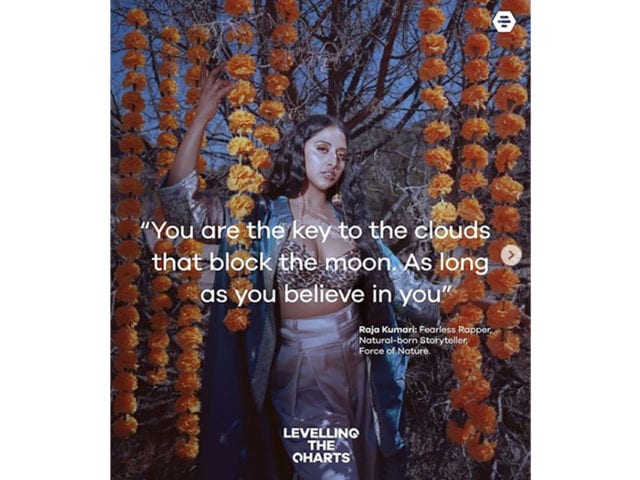
We’ve heard from many men and women who use Bumble that they appreciate that women make the first move. We have an engaged user base from various age groups, including Gen Z, Millennials, and Gen X. Since launch, Bumble India’s user base has quadrupled to surpass 3 million users, and one of our fastest-growing user segments is Gen Z.
We’re excited to see that women in India are empowered to make the first move on Bumble and have done so over 9 million times. Women in India are also sending twice the number of messages compared to women in the rest of the world, and 32 percent of women users in India use more than one mode (Date, BFF, and Bizz) on Bumble.
2. What are some features in Bumble that women should definitely explore?
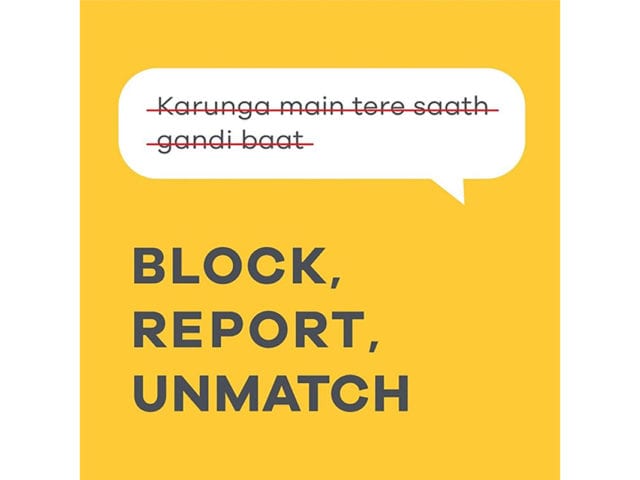
Our priority has always been women, and we have designed the app’s features to protect the safety of online communication.
Currently, we are experiencing a ‘virtual dating’ boom with people looking for ways to maintain the level of connection that they’re used to when dating. Features like Voice Calls and Video Chat have been really successful in allowing our users to have an even deeper connection without having to meet in public, or share your phone number/email and have as close to a “real-life” experience as possible. It wouldn’t be surprising if this behavior stays part of our routines post-quarantine.
We also have our Questions Game or ice-breaker feature to help women make the first move and spark a meaningful conversation with their match. These icebreakers are accessible from the match screen.
Additionally, for our launch, we also developed a feature specific to India where only the first initial of a woman’s name would show on her Bumble Date profile. When she is ready to share her full name with connections, she can; but until then, her identity is protected. This helps to ensure that she can’t be found on other platforms by those she doesn’t want to connect with.
We also have many global safety features that are live in India, such as:
- Block and Report: Users can flag anyone who makes them uncomfortable or who behaves inappropriately.
- Photo Verification: Bumble uses real-time photo verification technology to ensure the person a user is talking to is indeed who they say they are. If a profile picture doesn’t match up with a user’s real-time selfie, they won’t be able to access the app. We have thousands of moderators around the globe who work 24/7 to support our community.
- Private Detector: This feature uses AI that is capable of capturing images in real-time with 98% accuracy. Once a lewd image is shared within a chat, the “Private Detector” will automatically blur that image and alert the user that they have been sent something inappropriate. From there, the user can decide whether to view the image or block the image, and if compelled, easily report the image to the moderation team.
That said, we are also always innovating—trying to introduce more and more features (based on user feedback!) to help all our users feel comfortable and secure on our platform.
“We also developed a feature specific to India where only the first initial of a woman’s name would show on her Bumble Date profile. When she is ready to share her full name with connections, she can; but until then, her identity is protected.”
3. Do you think apps like Bumble can drive social change in terms of gender equality in relationships?
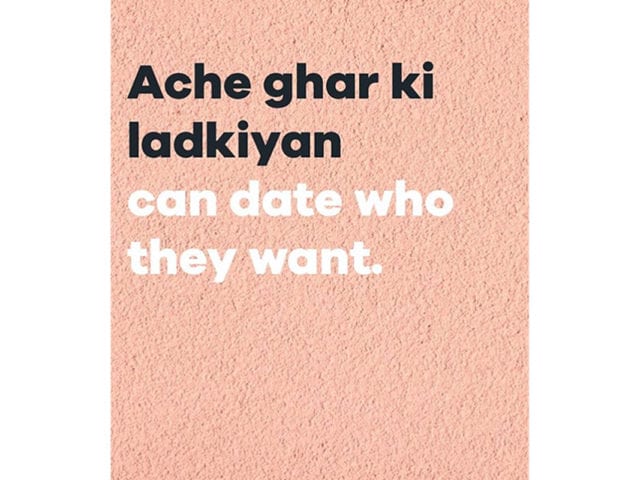
Bumble was founded in 2014 with the aim to challenge the antiquated rules of dating. We’ve made it not only necessary but acceptable for women to make the first move, shaking up outdated gender norms. We prioritise the need for kindness, respect and equality in all relationships, providing a safe online platform for users to form new connections.
This momentum of change and growth at Bumble has allowed us to collaborate with amazing partners and organisations that align with our mission of creating a space for equal and meaningful interactions between genders. We care deeply about bringing people together with a mission to end misogyny and create an inclusive world where all relationships are equal.
For example, recently, this World Music Day, 21st June, we announced an industry-first initiative called ‘Levelling The Charts’ to address the challenge of gender disparity and lack of opportunity in the music industry by partnering with trailblazing Indian music artists: Anushka Manchanda, Dhvani Bhanushali and Raja Kumari to offer up-and-coming musicians the chance to be mentored and get first-hand experiences and learnings by them.
In January 2020, we rolled out our integrated campaign, ‘Dating Just Got Equal’. The campaign aimed to challenge the antiquated rules of dating by empowering women to make the first move in forging meaningful connections. As a part of the campaign, we launched three digital films centered around the brand’s value proposition of ‘Making The First Move’ and the underlying narrative of everyday equality in relationships. The campaign was further amplified through a variety of out-of-home ads, quirky and engaging social content and influencer activations.
Our core values are kindness, accountability, equality, respect, and growth. These values are a part of our DNA and will continue to guide us along with our north star and mission to end misogyny and to create a kinder internet in all corners of the world.
4. How does Bumble’s corporate culture reflect the strong female leadership that helms the company?
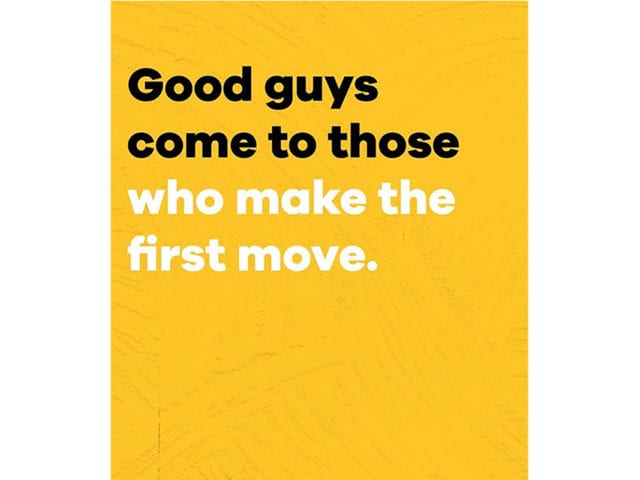
Bumble was founded by our CEO Whitney Wolfe Herd in 2014 with a powerful mission to end misogyny and create a safe and empowered space for women to make the first move in romantic relationships. At Bumble, we believe that by empowering women to make the first move, in all aspects of their life, they have the chance to set the tone of the conversation, leading to a more balanced and mutually respectful relationship from the start.
This is crucial because we find that when women are empowered, everyone is empowered! With Bumble having an 80% female workforce with a women majority c-suite, we see this as an incredible opportunity to rebuild the corporate culture.
I’ve often noticed that in many offices there is a great imbalance for men and women, further, the men are quick to advocate for themselves for a higher salary or promotion. When women fight for a higher salary, they can often feel guilty. We’ve always encouraged both women and men to go after the compensation they deserve, which is why we have a semi-annual review at Bumble that includes a mandatory open discussion about salary. This gives every employee an opportunity to advocate for themselves, and we give them the negotiating tools and the forum to do so.
We have created a work environment where every employee is empowered to bring their authentic and creative self to work every day, and this is achieved by prioritising transparency and flexibility. An example of that is our special focus on flexible work from home policy, especially for working parents. At Bumble, we truly believe that cultivating a culture where employees are encouraged to be the best version of themselves, personally and professionally, has helped our business grow as well.
“I’ve often noticed that in many offices there is a great imbalance for men and women, further, the men are quick to advocate for themselves for a higher salary or promotion. When women fight for a higher salary, they can often feel guilty.”
5. As the VP of Strategy, what’s your advice for women who are trying to get a seat at a table in similar organisations?
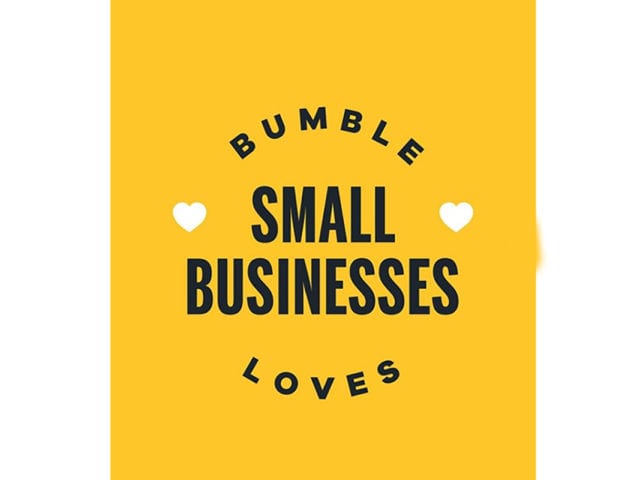
For women specifically: It’s okay to feel like you don’t deserve your promotion / additional responsibility / praise from your manager—but be confident and celebrate these moments… because you actually DO deserve it!
As a woman in business, I’ve suffered from Imposter Syndrome throughout my career. It’s a challenge that, in full transparency, I haven’t fully overcome yet; but I’m working on it. I actively work on it by engaging my colleagues to support me in my journey. As an example, If I ever feel like I don’t belong in a conversation, I’ve asked a handful of trusted colleagues to remind me why they think I do. I’ve found that being vulnerable and enlisting the support of others has helped me on my journey to overcome Imposter Syndrome and its effects on me.
I always tell young women that they have a right to own their opinion, to speak up, and to make the first move.
“As a woman in business, I’ve suffered from Imposter Syndrome throughout my career. It’s a challenge that, in full transparency, I haven’t fully overcome yet; but I’m working on it. I actively work on it by engaging my colleagues to support me in my journey.”
6. How relevant do you think a platform like Bumble is in India? Can you tell us something about the user behavior of Indian women on the dating app?
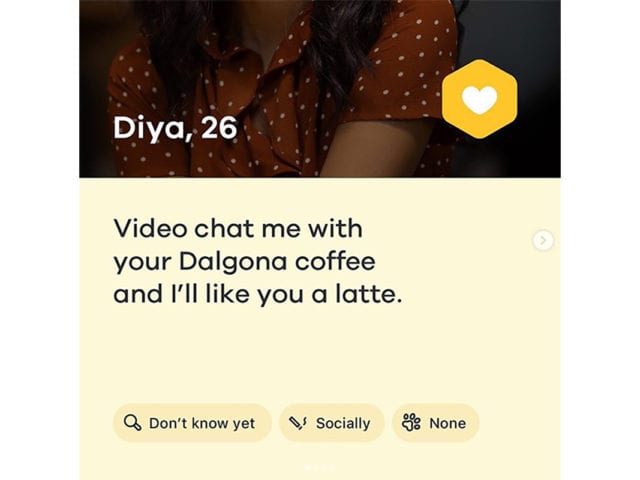
During our strategic planning, we observed that the dating app industry in India is highly fragmented. On one side, there are many global apps focused on dating, and on the other, there are local, homegrown players focused on dating or matrimony. Bumble saw an opportunity to play in the middle—to bring to India a social network where women are empowered to make the first move when forming connections in love, life and work.
From the dating ecosystem perspective, we’ve seen that more and more people globally are meeting their romantic partners online given the widespread access to technology, smartphones, education, and financial independence. We’re also noticing a similar adoption in India as well wherein 41 million Indian singles (that’s nearly 50% of the 2011 census single population) will be on dating apps and actively looking for relationships by 2022! (Source: Online Market Researcher, Statista)
With over 95 million users globally and more than 1.5 billion first moves made on Bumble since the app launched in 2014, we’ve gathered a lot of insights around dating attitudes.
These key trends include:
- Shift in gendered rules of dating: We have identified a need for a platform that enables women to create a new normal in the world of dating and to break the stereotypical rules. Women need to stop second-guessing themselves. As a society, we should be celebrating the importance of equality in relationships.
- The power to choose: With significant growth in Gen Z users we can see that relationships are slowly turning from an obligatory social arrangement to a matter of personal choice.
- Continued focus on safety: We are working every day to bridge the gap between the physical and digital world in order to empower users to feel safe and secure in making connections online.
- Forging like-minded connections: Mutual interests are an important foundation for any relationship, and we can see that both men and women are using the app to find people with similar interests to them. For men it is often an interest in fitness and health, while women are looking for compatibility in zodiac signs.
- Combating loneliness: We have seen that feelings of loneliness can negatively affect the Indian youth (according to The Hindu) and we know how important meaningful human connections are for a happy and healthy life. Bumble is a platform for our users to make authentic and empowering connections.
- Dating app usage amongst Gen Z and Millennials: Bumble users are most active between 8 PM to 10 PM, indicating that both groups are looking to form connections and start conversations in the evenings.
To read more about Priti Joshi and her professional journey, find her on LinkedIn.
Think you’re a Self-Starter or know someone who is? Drop us an email to be featured on The Channel 46 at [email protected].
About Self-Starters
We spotlight inspiring women who are entrepreneurs or have skill-based passion projects and are willing to share knowledge, advice and tips about getting started in the space. Each Self-Starter’s story will be highlighted in a prime slot on the Homepage for a week.

